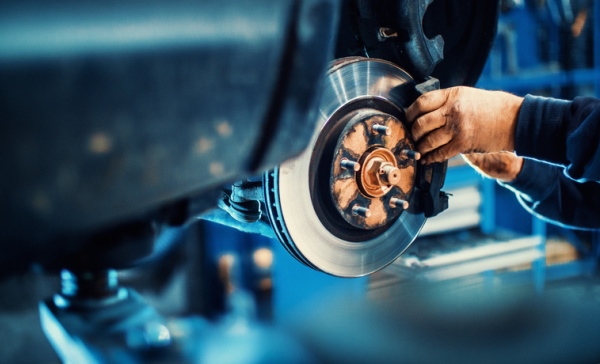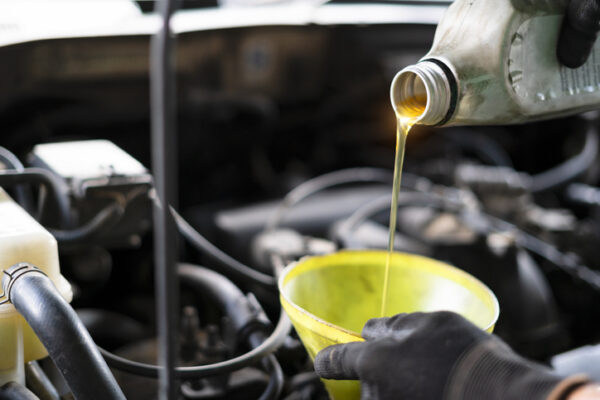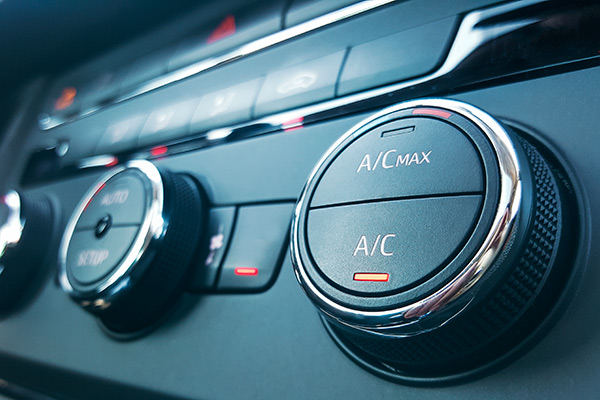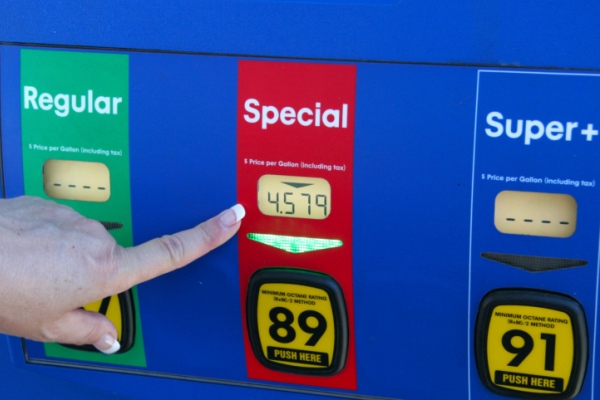There are a lot of car owners out there who don’t consider brake maintenance a priority—until something goes wrong. Do not make this mistake. When you hit the brake pedal, a complex network of parts springs into action. In order for the system to keep functioning properly, certain pieces must be replaced at regular intervals. Among those components, the ones that you’ll probably be switching out the most often are your brake pads.
What Are Brake Pads And How Do They Work?
In most modern automobiles, the front two wheels have a braking apparatus that depend on what are known as rotors: metallic discs found behind each wheel. Above each of these is a clamp-like device called the caliper. When you hit your brake pedal, the calipers start to close, squeezing the rotors from both sides. This action produces friction, which causes the wheels to spin more slowly until they come to a complete stop.
Brake pads are the removable surfaces that calipers use to make contact with the rotors during this process. These brake pads won’t last forever. (No car part does.) The friction mentioned earlier will inevitably wear them down over time. Let the brake pads get too thin, and your brakes won’t work as effectively as they should. For safety’s sake, it’s imperative that you get new brake pads installed at the first sign of trouble.
Should you notice any of these five red flags, ask an auto repair shop to replace the old brake pads ASAP.
Signs You Need New Brake Pads
1. You hear a squealing noise.
Picture this: You’re out driving with the radio off and the windows rolled up. In the relative quiet, you hear a faint scraping, squealing, or buzzing sound. You also observe that, whenever you hit the brakes, that mysterious noise goes away, only to return again as soon as your foot comes off the brake pedal. What’s going on here?
Today, most—but not all—brake pads are manufactured with built-in “wear indicators.” The sole purpose behind these things is to emit that unpleasant screech you just heard. Wear indicators are metal tabs located near the top of typical brake pads. When the brake pad itself wears down to a dangerous extent, the indicator will scrape against the rotor. This creates a distinctive grating noise which warns the driver that his or her current brake pads are in danger of eroding away altogether.
2. You hear a clicking noise.
In some cars, the brake pads fit snugly into a special holding device. Other vehicles keep them steady with clips, bolts, or pins. At all rates, the common goal behind these designs is to keep the brake pads from wobbling around. If they become loosened somehow (perhaps after a part of the surrounding hardware gets damaged), they’ll begin to rattle. What then results is a clicking sound that rings out whenever the brake pedal is pushed or released.
3. Bringing the car to a stop takes more time than it used to.
This problem has a name and that name is “brake fade.” More often than not, it’s the direct result of intentionally applying the brakes over a vast distance without bringing the car to a full stop. From time to time, such a maneuver might be necessary, particularly when driving down a mountainside or over a winding road. However, if this is something you do frequently—say, if you live in a hilly area where you must regularly drive downhill—it will take a toll on your braking mechanism over time. By forcing the brake pads to make contact with the rotors for a long, uninterrupted period, both components will heat up. In the process, their ability to generate needed friction against each other is reduced over time. As a result, you’ll find that your car won’t come to a complete stop as rapidly as it once did.
4. The nose of your car pulls to one side when you brake.
Your vehicle’s brake pads won’t always wear out at the exact same rate. Sometimes, those on one side will get thinner faster than their counterparts on the other side. Should this occur, the car may pull slightly to the left or right once you hit the brakes. Leave the problem unchecked, and you’ll put unnecessary stress on your steering rack (plus your vehicle’s ball joints, steering knuckles, and wheel bearings). Don’t risk it: Have a mechanic investigate the problem immediately.
Note that brake pads might not necessarily be the cause behind this particular symptom. It may also stem from such other issues as uneven tire pressure, a faulty wheel bearing, or malfunctioning brake caliper. With that said, if unevenly worn brake pads really are the culprit, two new sets should be installed in one session.
5. The brake pedal vibrates when pressed.
Does the brake pedal violently shake whenever you step on it? Your brake pads might be causing the problem. Brake pads are typically held together with a kind of binding resin. As each brake pad wears down, this adhesive gets hot and gets smeared across the rotor. Under ideal circumstances, it will form a layer that’s evenly spread over the disc’s surface. But if a brake pad gets overheated, the resin may not be distributed uniformly. Mechanics call this issue “glazing” and it can cause brake pedals to vibrate.
A pulsating brake pedal isn’t a trustworthy one. If this issue goes unchecked, your ability to brake safely could be compromised. When it comes to brake-pad upkeep, stay safe and don’t procrastinate.
A breakdown never makes for a fun day. GEICO’s Emergency Roadside Service can help if your car breaks down, if you lock your keys in the car, if you have a flat tire, or for any of a number of emergencies. Add it to your policy starting at just $14 per year, per vehicle, for peace of mind out on the road.
Next article: 7 Car Noises You Should Never Ignore










Joyce Lynn Murray says,
Thanks for all the good car care info.
mahikaur says,
Very interesting. But is it necessary to have an oil and brakes change with in a every 6 months.
Joan S Anderson says,
Hello,
This has been very helpful being a single Mom. So far, so good. Is it necessary to have an oil change every 3,000 miles on a 2012 Hyundai Elantra?
Thank You,
Sincerely,
Joanie Anderson
Carolynn says,
Tough luck if it is a Toyota! I kept taking it in because of noise from the driver’s side front and they always said they couldn’t hear/find anything wrong. Then the brake pad abruptly delaminated without additional warning! A piece of the brake pad lodged against the disc, immediately immobilizing that wheel. Could have been deadly if I was on a highway at the time!
Francesco says,
Francesco
I have a 2014 Jeep Wrangler 2dr with 25k miles
Took it in for on oil change @ jeep dealer 3.k miles ago .there I was told that my rear breake pads rotor were shot and needed it to be replaced. ( I was surprised to hear that!!! ) I said no thank you !!!
Last week went to a different jeep dealer for the oil change . I asked the service department to check the breaks .
Again to my surprise they came back and said that the breaks are totally fine ( who shoul I believe ? I only hear a very little squeak when I’m backing out .
Felipe munoz says,
Great education for must drivers, who’s driving skills are limited.
Rachel Lannister says,
You wrote that if the nose of your car pulls to one side when you brake, you need to get your brakes replaced. I noticed this exact thing the other day while I was in my car. I’ll have to find a good repair service, so that I can brake normally and stay safe while driving.
Troy Blackburn says,
That’s super interesting that sometimes the brake pads on one side of your car will get thinner faster than the pads on the other side. I had no idea! I’ve heard that you should have your brakes checked every time that you get your oil changed just as a precautionary measure to make sure everything is safe. I’ll be sure to pay attention to any of these signs so that I can know if I need to get my brakes fixed!
Bereket says,
Great information and a learning curve.
Rob Buhrow says,
Informative
heather L Lopez says,
What if your brake pedal go’s to floor? Fluid does not stay in Brake fluid container under hood
Jerry says,
If your brake pedal is dropping to the floor, and you’re constantly having to add brake fluid to your master cylinder, then your brake system has a leak somewhere. Get this fixed immediately! If your car runs out of brake fluid, or gets too low, the brake lines fill with air, and your brakes will not function at all.
Doug says,
You have a leak in the system; either master cylinder (under the hood) brake lines (especially if the car is older and the lines are rusted, or one of the 4 individual calipers (on the wheels). This is very dangerous, and if you are still alive after posting this in December, please get it fixed immediately!
Mario Cajar says,
Excellent tips! And here’s one more: A pulsating brake pedal can also indicate a warped or out-of-round rotor, which can cause serious brake pad wear or even damage to the caliper. In any case, it should be checked out pronto!
William J. Grey says,
You should make these mandatory reading to renew your insurance.
ruth kizior says,
make the page easier to print without the picture. hate two waste colored ink
Kristofer says,
I think the SEO industry has got a bad rap from all
the cowboys and outsourced companies out there
Bookmarked your website, I have to keep up with your posts!